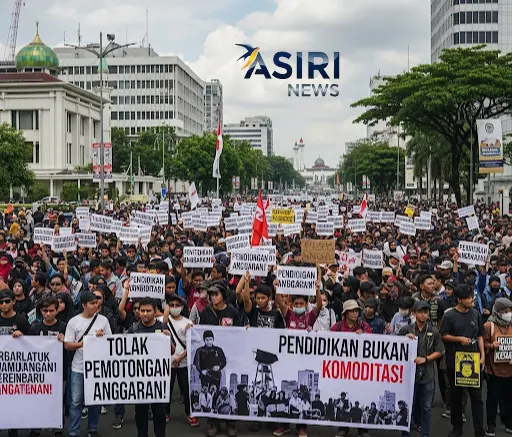Indonesia is facing a brewing political crisis as President Prabowo Subianto’s administration pushes for a substantial cut to regional government budgets for 2026. The move, intended to redirect funds toward ambitious national programs like free school lunches, has ignited widespread backlash, as local administrations grapple with a severe fiscal squeeze and resort to unpopular tax hikes. These measures have already sparked protests across the archipelago, raising critical questions about the delicate balance between central and local power.

The proposed budget would slash regional transfers by approximately 25%, reducing them to 650 trillion rupiah ($40 billion). These transfers are the lifeblood of local governments, accounting for as much as 80% of their total budgets. The significant cut is meant to free up funds for key national initiatives, including the president’s flagship free school lunch program, which aims to feed over 83 million people by 2029. While the central government argues these programs will drive long-term economic prosperity, critics warn that the sudden financial pressure could stall local services and development projects.
In response to the cuts, many local governments have been forced to seek new revenue streams. The quickest and most visible way to do this has been through steep local tax hikes. The result has been immediate and fierce public opposition. In Central Java’s Pati regency, a plan to raise land and building taxes by up to 250% ignited protests that saw thousands take to the streets, demanding the regent’s resignation and leading to clashes with police. Similarly, in Bone, South Sulawesi, a planned 65% increase in property taxes triggered riots, forcing the government to intervene and urge local leaders to roll back the tax hikes. The Ministry of Home Affairs has since issued a circular letter ordering regional leaders to cancel any increases exceeding 100%.
This tension is not new. It reflects a long-standing debate over Indonesia’s governance model. After decades of a highly centralized government under former President Suharto, decentralization was a key pillar of reform. It was designed to ensure more equitable development across the vast archipelago. Now, critics fear that President Prabowo’s budget marks a return to a more centralized system, where the central government controls both the purse strings and the national agenda, leaving local administrations with little autonomy to address their specific needs.



